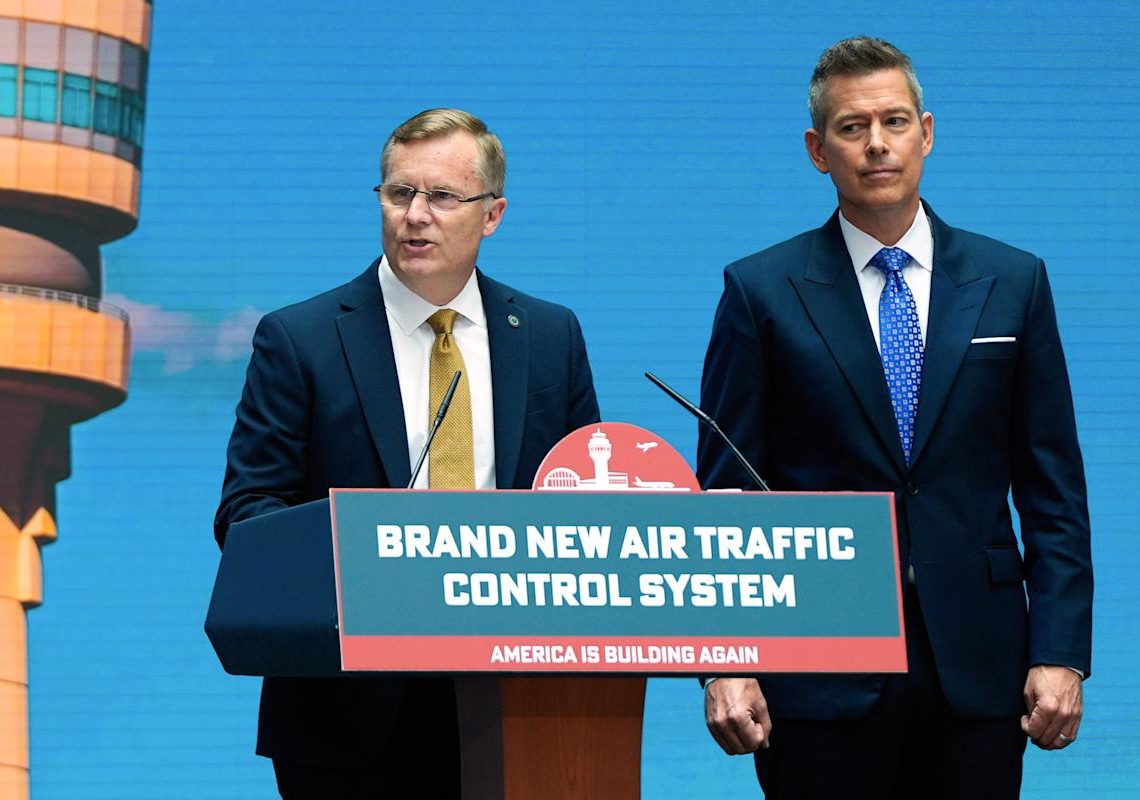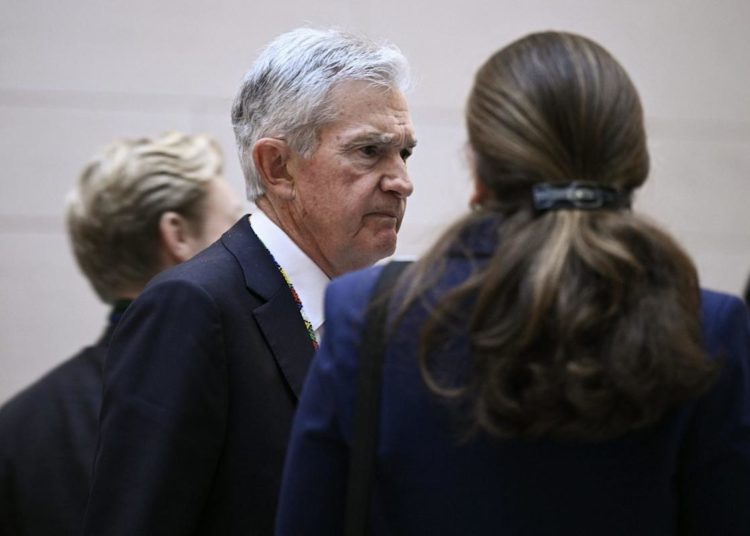Transportation Secretary Sean Duffy plans to reduce the number of flights in and out of the Newark Liberty International Airport for the “next several weeks,” as New Jersey’s largest airport struggles with radar outages and other issues, including one Sunday, and flight delays and cancellations due to a shortage of air traffic controllers.
Speaking on NBC’s “Meet the Press,” Duffy said he will convene a meeting with all the airlines flying out of Newark this week to determine the reduction, adding that it will fluctuate, with a larger reduction coming in the afternoons when international flight arrivals make the airport busier.
“We want to have a number of flights that if you book your flight, you know it’s going to fly, right?” he said. “That is the priority. So you don’t get to the airport, wait four hours, and then get delayed.”
The Federal Aviation Administration reported a “telecommunications issue” on Sunday at the facility in Philadelphia that directs planes in and out of Newark airport. The agency said in a statement that it briefly slowed aircraft in and out of the airport, while ensuring that “redundancies were working as designed.” Operations then returned to normal.
That issue emerged two days after radar at the facility in Philadelphia went black for 90 seconds at 3:55 a.m. Friday, an episode that was similar to an incident on April 28.
The FAA said in a statement last week that it slows the rate of arrivals into Newark to ensure safety when staffing or equipment issues occur. The agency noted that frequent equipment and telecommunications outages can be stressful, prompting some air traffic controllers to take time off “to recover from the stress.”
“While we cannot quickly replace them due to this highly specialized profession, we continue to train controllers who will eventually be assigned to this busy airspace,” the FAA said in a May 5 statement.
There has been an average of 34 arrival cancellations per day since mid-April at Newark, according to the FAA, with the number of delays increasing throughout the day from an average of five in the mornings to 16 by the evening. They tend to last 85 to 137 minutes on average.
The Trump administration proposed a multibillion-dollar overhaul of the U.S. air traffic control system Thursday that includes six new air traffic control centers and technology and communications upgrades at all of the nation’s air traffic facilities over the next three or four years.
Duffy said Sunday that he also plans to raise the mandatory retirement age for air traffic controllers from 56 to 61, as he tries to navigate a shortage of about 3,000 people in that specialized position.
He plans to give those air traffic controllers a 20% upfront bonus to stay on the job. However, he says many air traffic controllers choose to retire after 25 years of service, which means many retire around the age of 50.
“These are not overnight fixes,” Duffy said. “But as we go up — one, two years, older guys on the job, younger guys coming in, men and women — we can make up that 3,000-person difference.”
Adding more air traffic controllers is in contrast to a top priority of the Trump administration — slashing jobs in nearly all other federal agencies. However, United Airlines CEO Scott Kirby said on CBS’ “Face the Nation” that Duffy deserves credit for putting “caution tape” around FAA safety functions and separating those personnel from DOGE cost-cutting.
Kirby said United has already reduced its schedule at Newark, and will meet with Duffy later this week. He expects a deeper cut in capacity to last until June 15 when construction to one of Newark’s runways is expected to be complete, though he thinks some reductions will last throughout the summer.
“We have fewer flights, but we keep everything safe, and we get the airplane safely on the ground,” Kirby said. “Safety is number one, and so I’m not worried about safety. I am worried about customer delays and impacts.”
The post Another issue disrupts Newark’s airport as Trump’s transportation secretary plans reducing flights appeared first on Associated Press.



